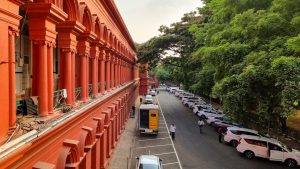
Introduction
Under the contemporary regulatory and judicial framework, the NCLT has become adjudication fora of first instance to resolve a range of commercial disputes arising from company law, insolvency laws, securities laws, etc.. The functioning of the NCLT impact the the ease of doing business in India significantly. This blog post explores some of the pain points of practising advocates backed with quantitative data pertaining to the filing of matters before an NCLT.
Pain points
I. Not so digitised filing mechanism
The first stage of initiating a matter before NCLT is filing/e-filing. As per the NCLT Rules 2016, every petition, interlocutory application, caveat, appeal inter alia should be presented in triplicate by the party aggrieved in person or through their lawyer at the filing counter in order for the petition or appeal or concerned application to be entertained. During the year 2019-2020, most of the NCLT benches introduced e-filing of petitions/appeals/replies etc. However, ironically the notification for e-filing also made it mandatory to file two complete sets of hardcopies which dilutes the purpose of digitising the whole process of e-filing. We found that many advocates see it as an additional burden “The rule of hardcopy also doesn’t make any sense. With the Chief Justice of India rooting for digitisation of filing and record filing additional hard copies makes no sense to me” grieves a lawyer appearing regularly before NCLT Delhi. This is not a unique NLCT issue. Several courts also insist on physical copies to be filed along with e-copies.




